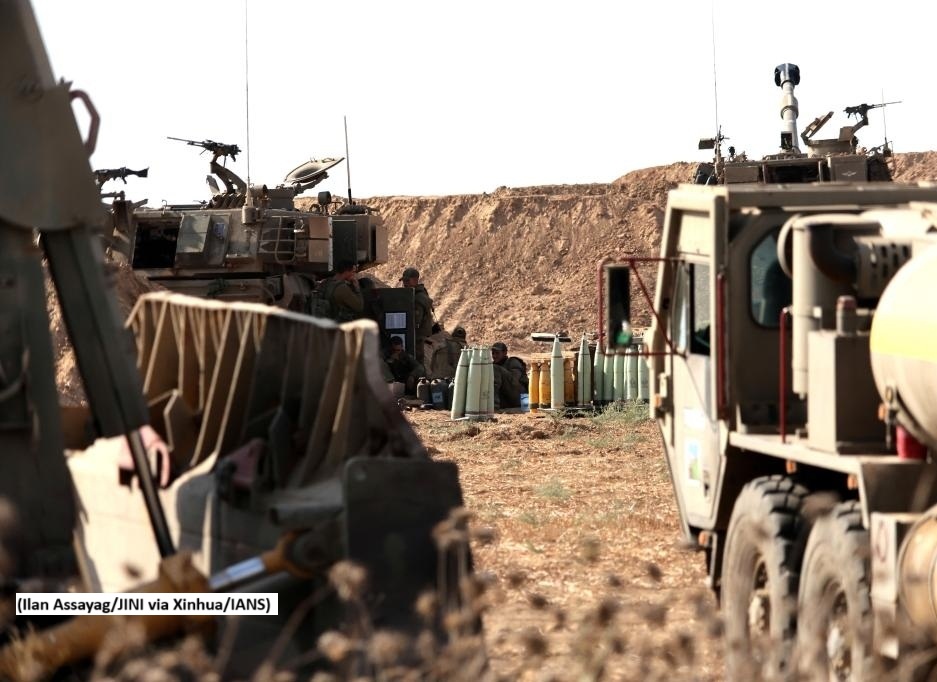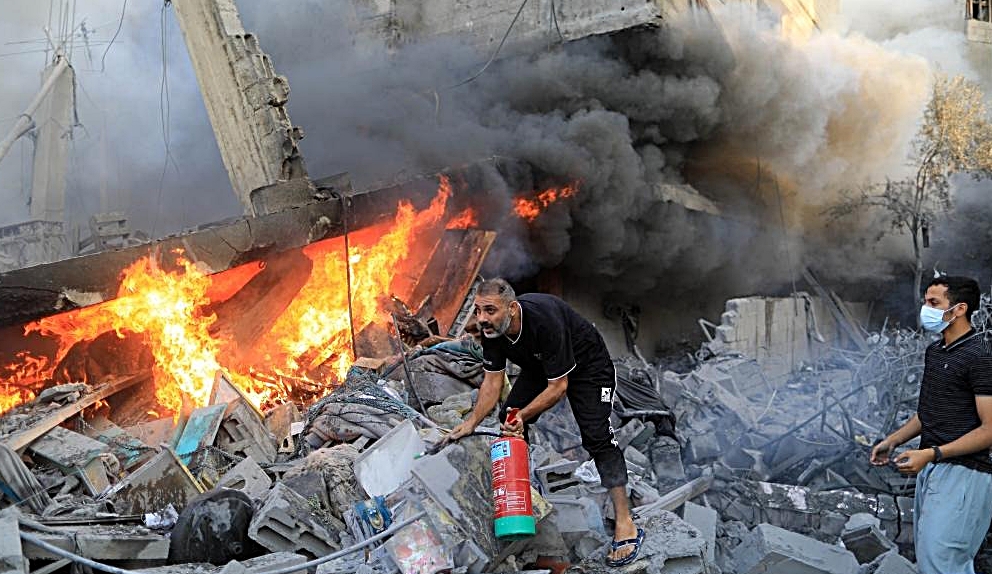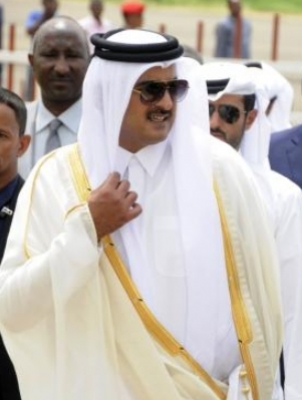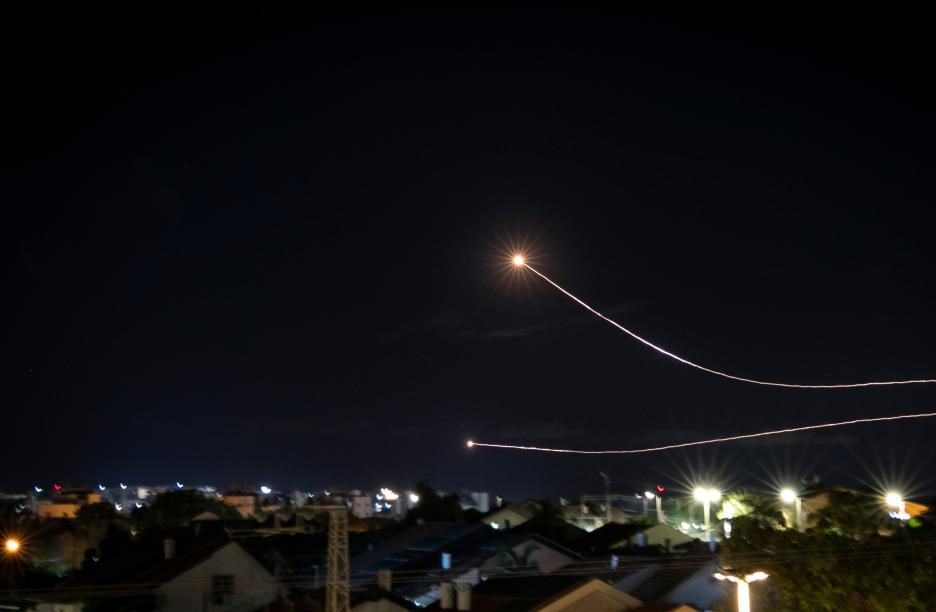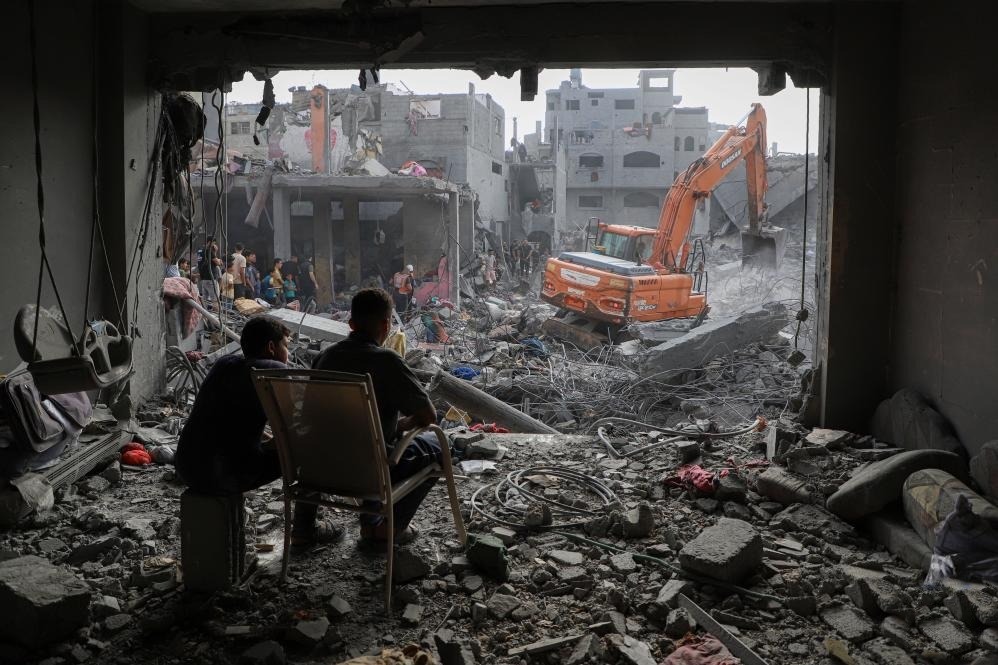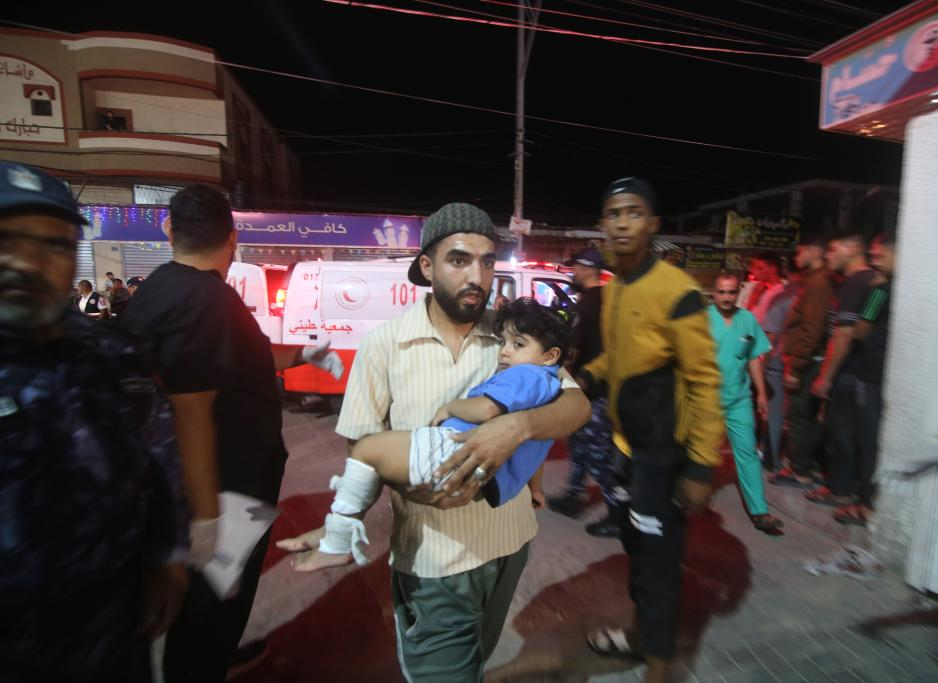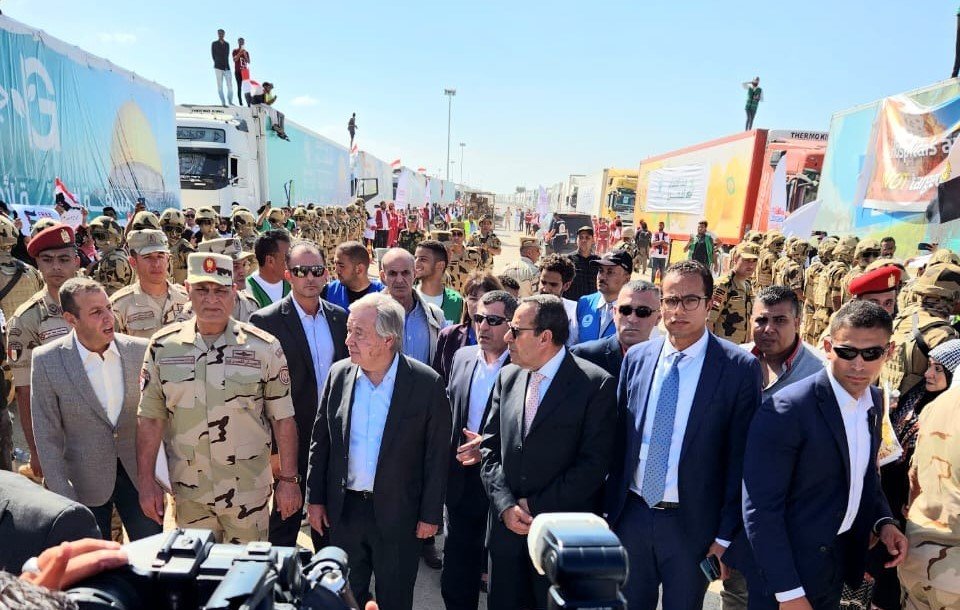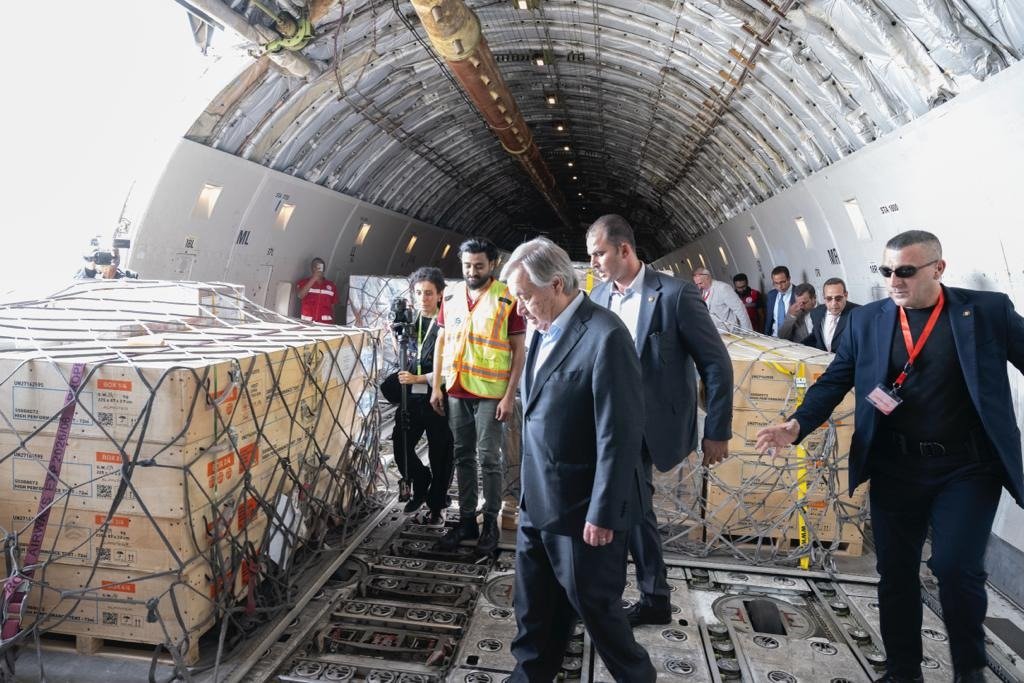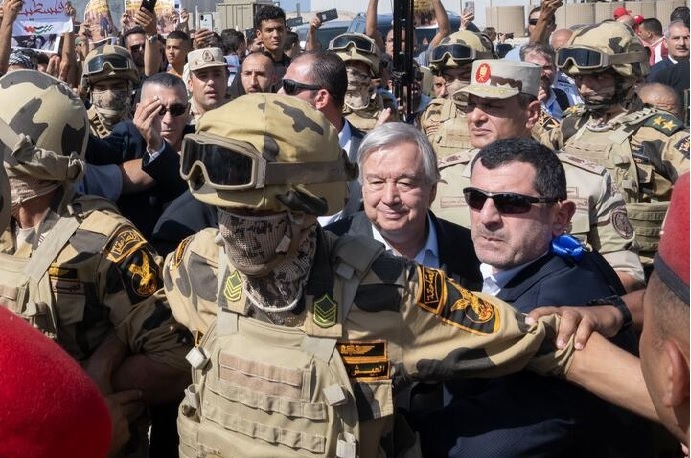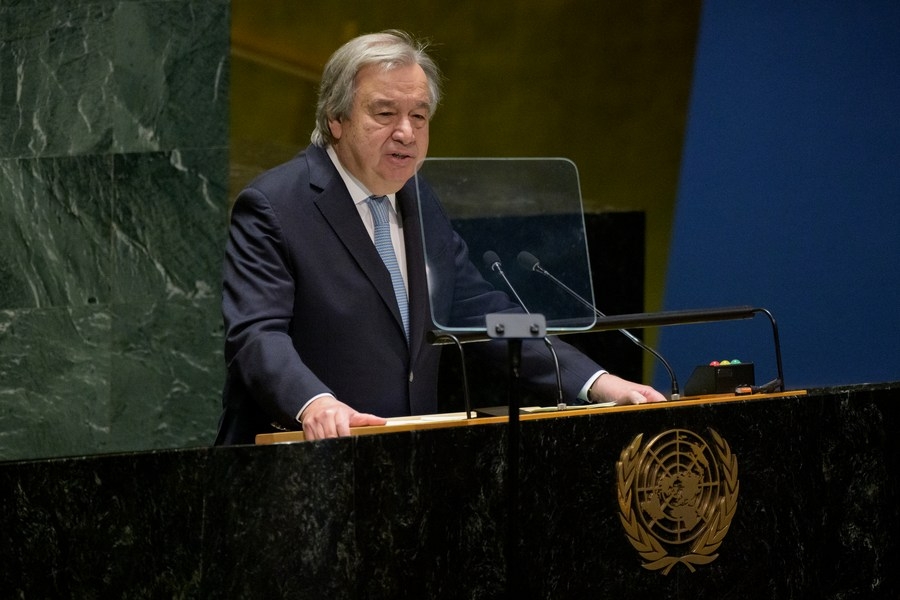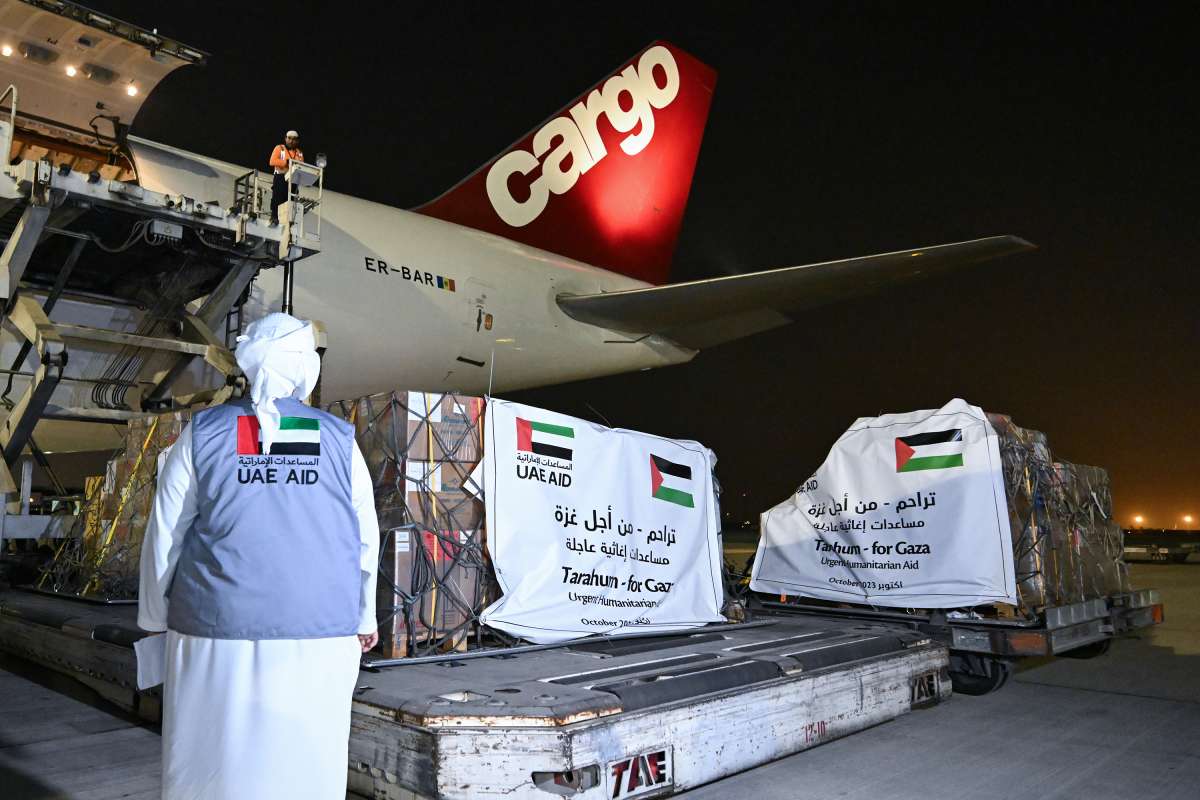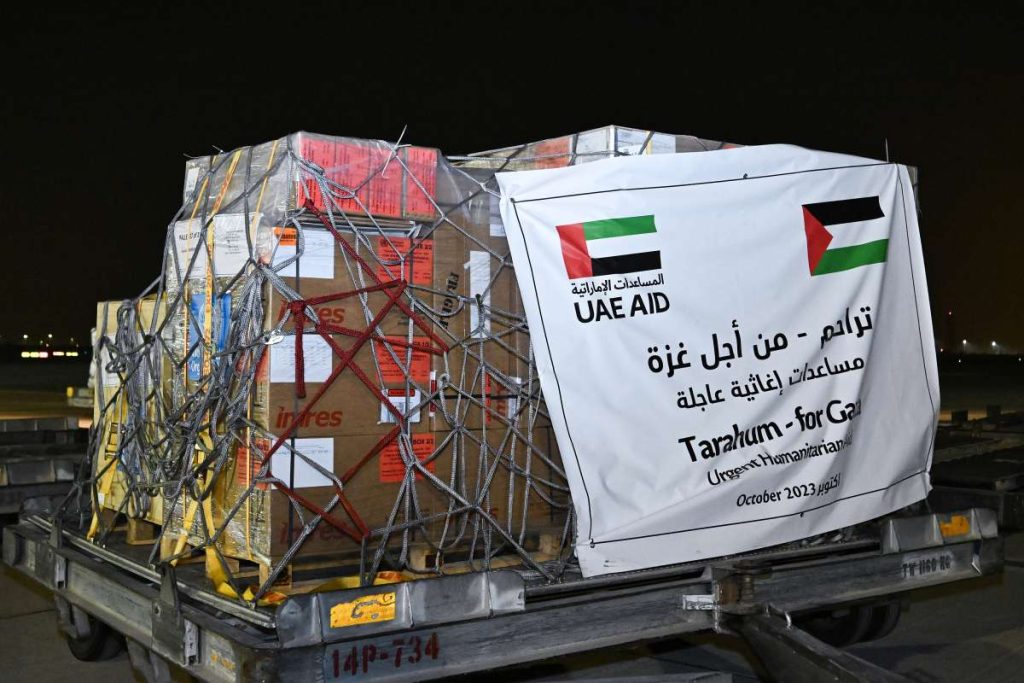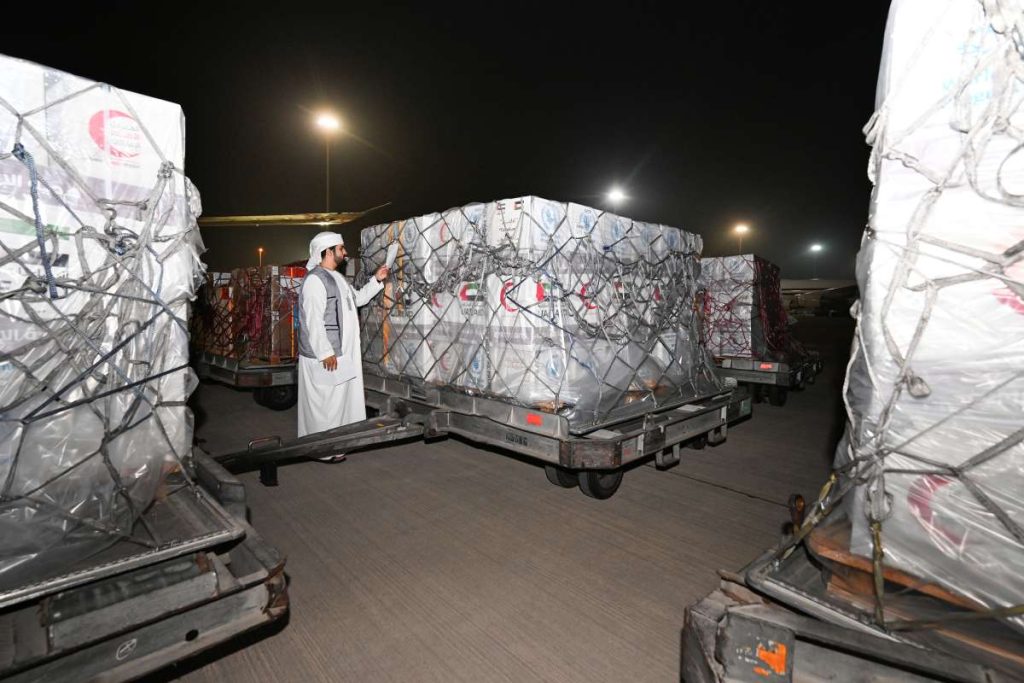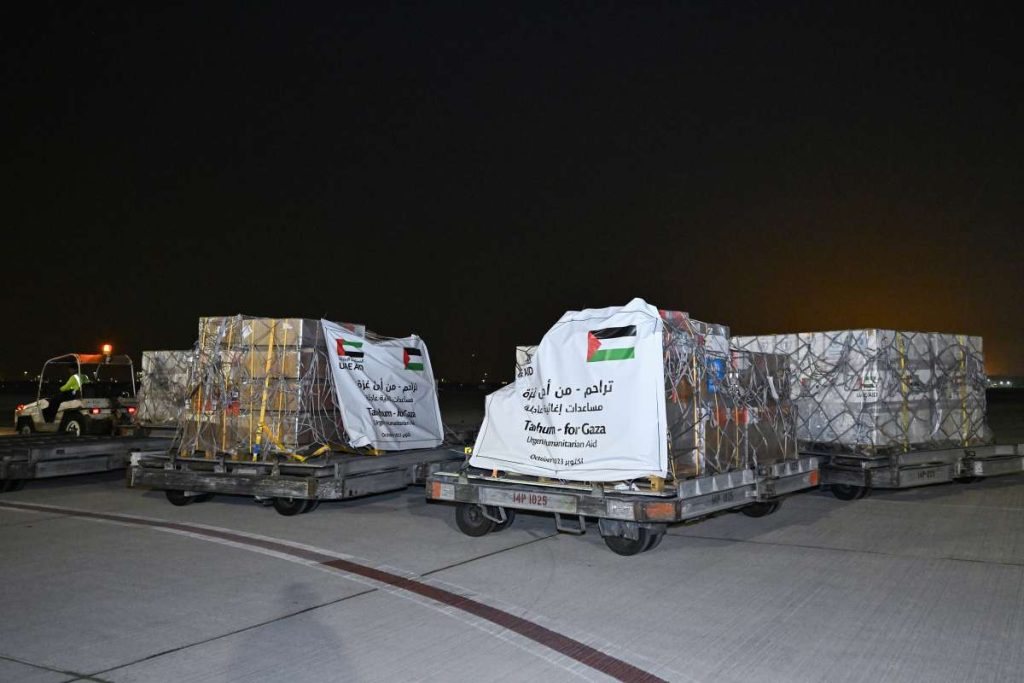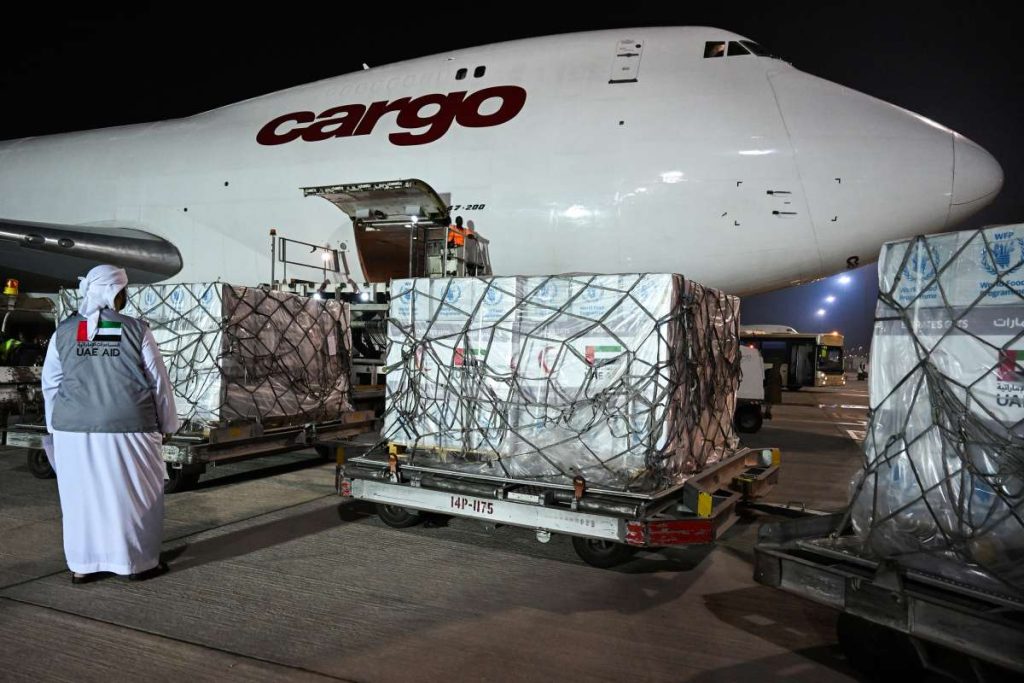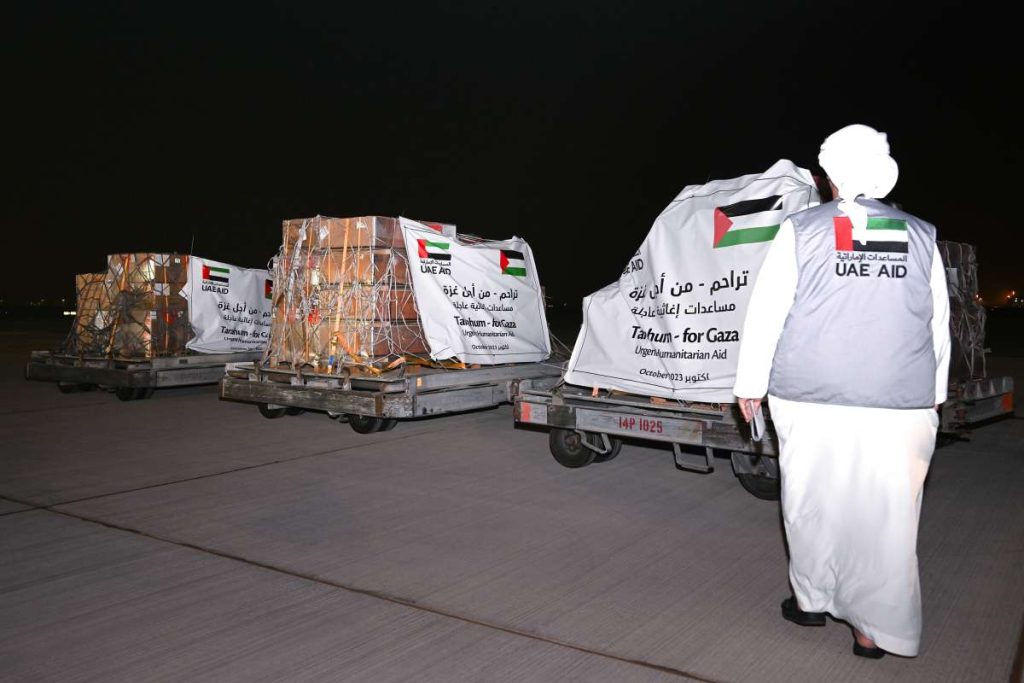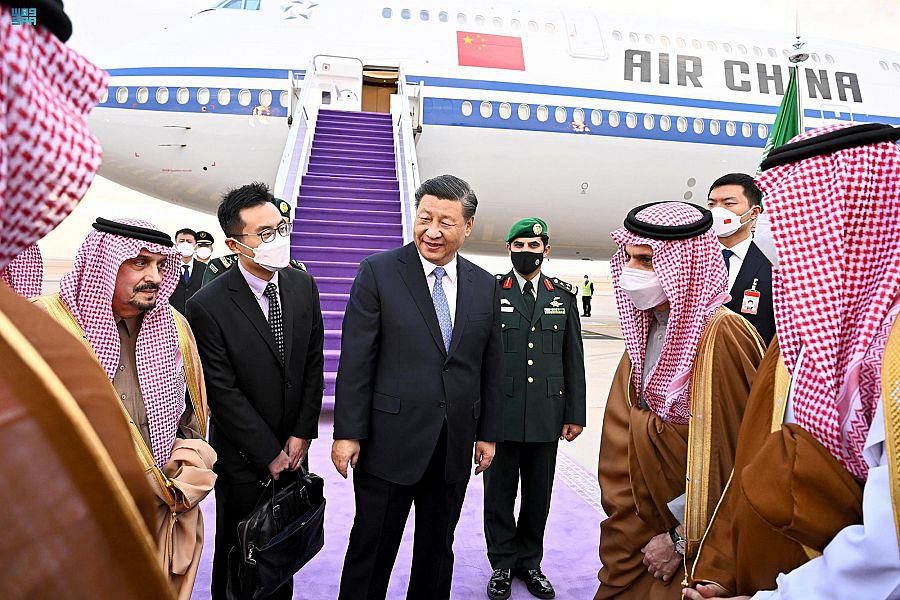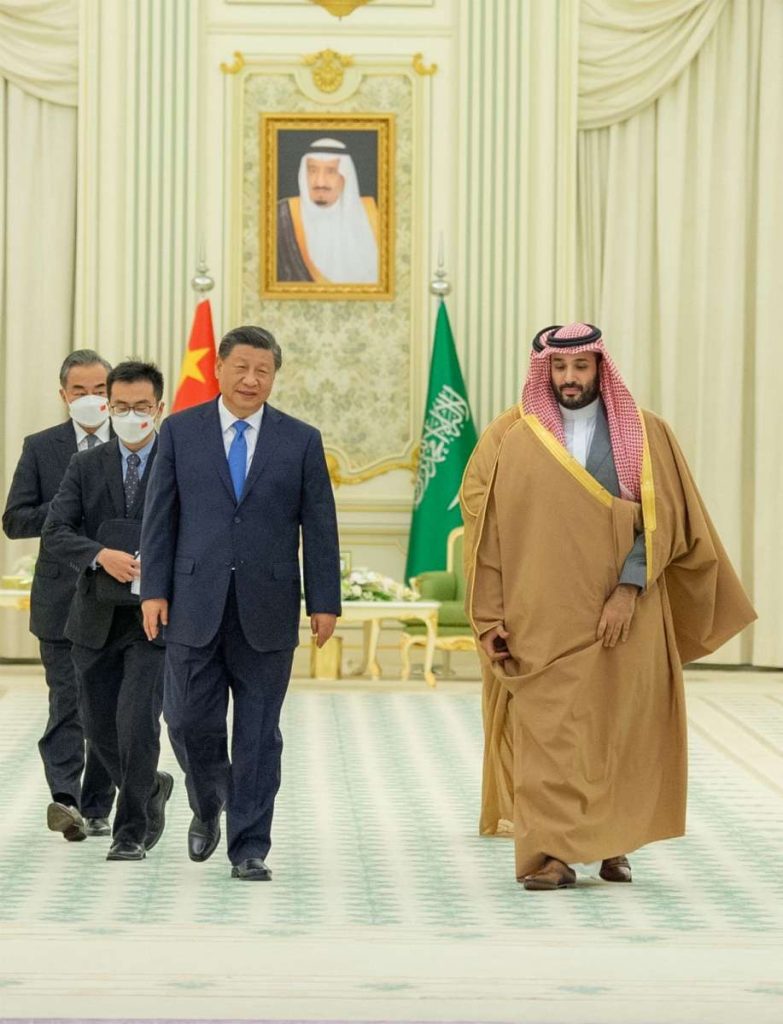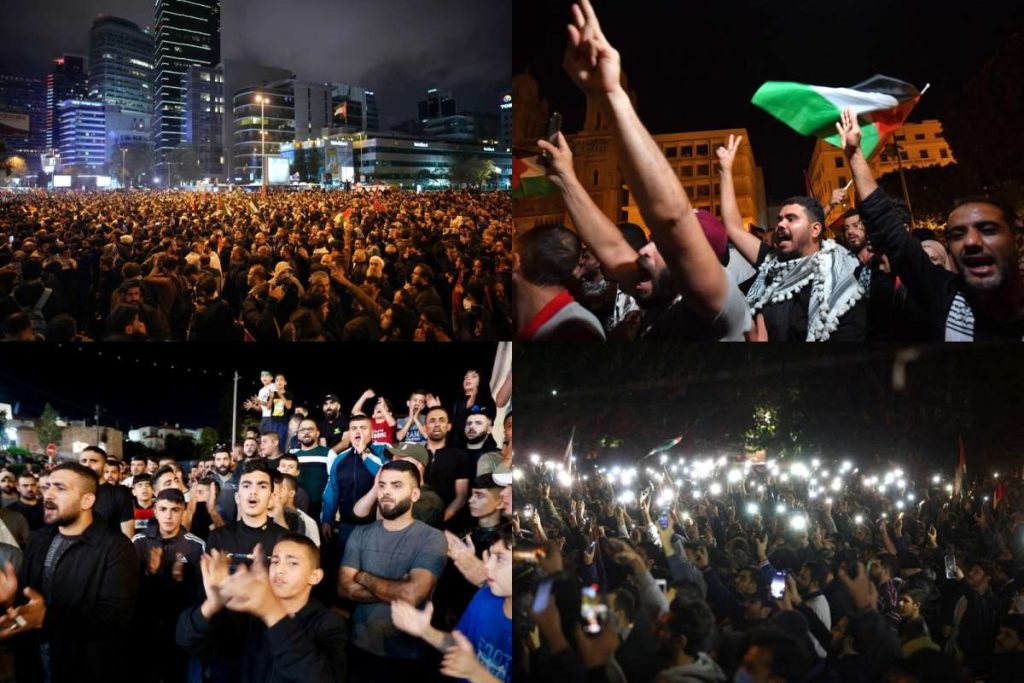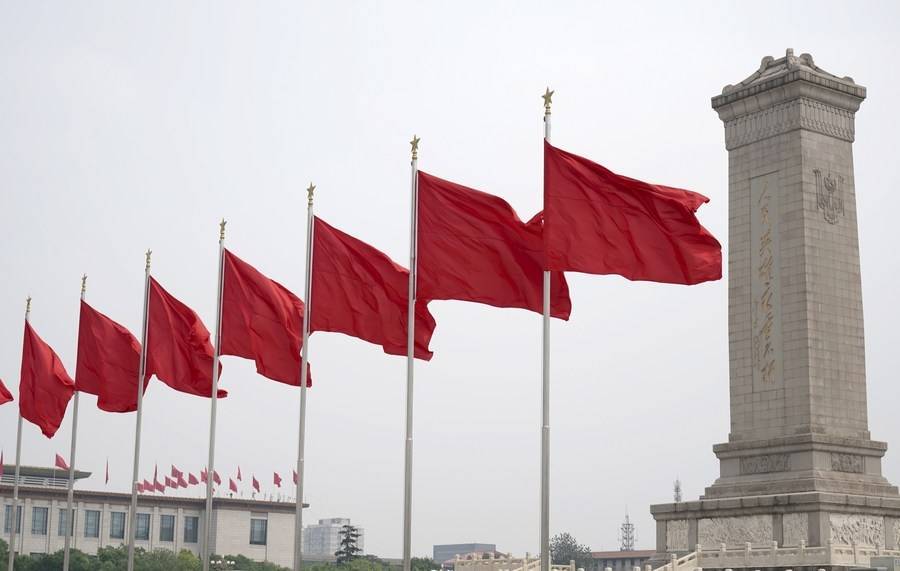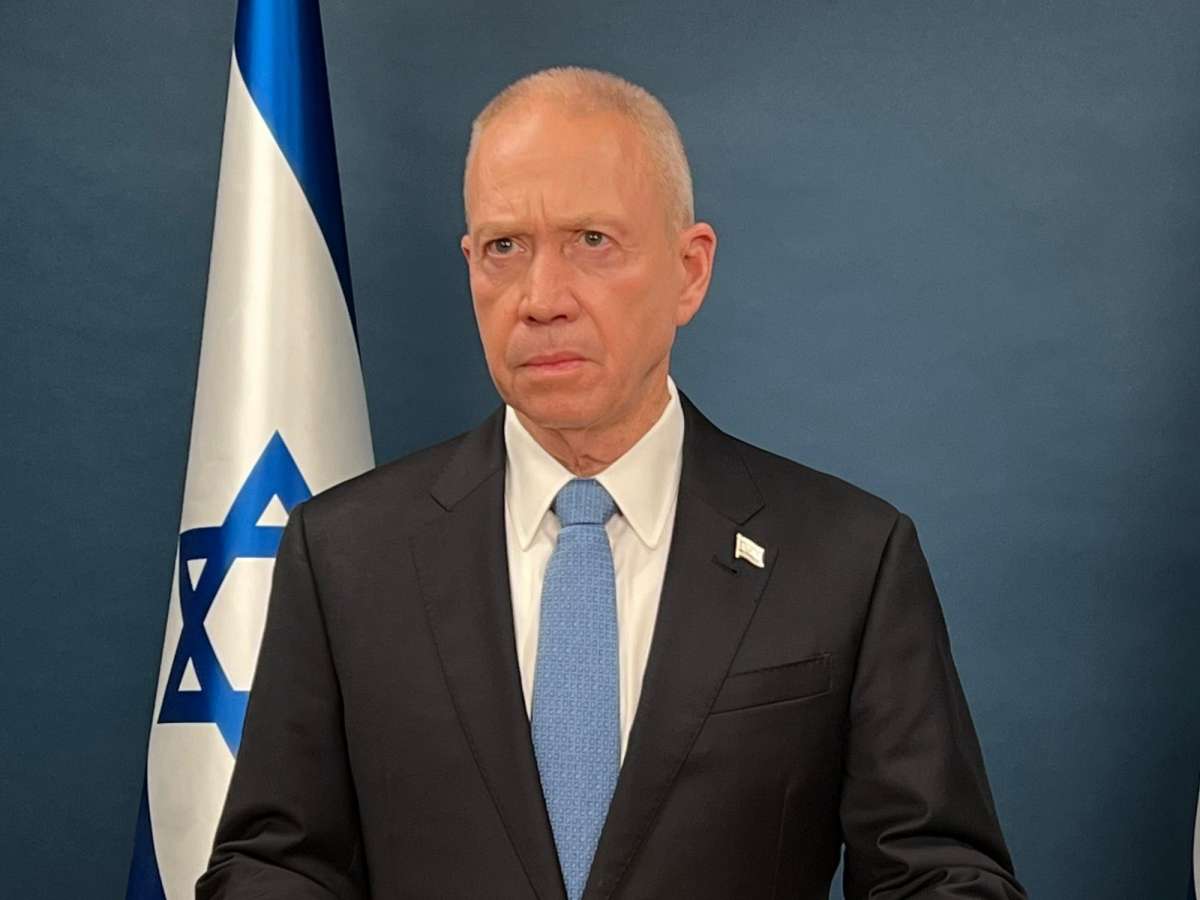Britain abstained on the resolution, while France voted for it…reports Asian Lite News
A stern-faced US Permanent Representative Linda Thomas-Greenfield, peering over her glasses, raised her right hand to cast a lone veto on a near-consensus resolution condemning the Hamas attack on Israel, but also calling for a pause in the fighting, while close ally Britain’s envoy Barbara Woodward looked down, studying papers on her desk.
That tableau on Wednesday at the Security Council captured the shifting mood at the UN where Russia had been on the defensive and a solid Western alliance had stood together on Ukraine, which has been the main polarising factor.
Britain abstained on the resolution, while France voted for it.
Next, the issue will go to the General Assembly with vivid pictures of the wounded or killed, who included children, in Israel’s retaliatory attacks – not counting the contentious hospital explosion – continuing to stir emotions amid reports of over 3,500 people killed in Gaza.
On the day of the Council vote, US President Joe Biden was in Israel in a show of support for that embattled nation, but had been rebuffed by the leaders of Jordan, Egypt, and Palestine who called off a planned summit.
And Secretary-General Antonio Guterres, unwelcome in Israel, was preparing to visit Egypt the next day and by the weekend, was at a peace summit, convened on Saturday by Egypt’s President Abdel Fattah al-Sisi, which had high-powered representation from the region and beyond hoping to douse the flames of conflict.
Showing a shift from the ineffective Security Council in New York, but with UN participation, eight heads of state including from Jordan, UAE, Qatar, and Bahrain, as well as notably South Africa were expected at the summit; so were Prime Ministers of five countries – Spain, Italy, Greece, and Iraq, among them, and Foreign Ministers from Britain, France, Japan and Germany and three others. (Russia and China were represented by senior diplomats at other levels).
The principals in the conflict – directly or indirectly – Israel, Hamas, and the US were glaringly absent.
Guterres told the assembled leaders: “The time has come for action, action to end this godawful nightmare – action to build a future worthy of the dreams of the children of Palestine, Israel, the region and our world.”
When the the Council met on Wednesday it was under the cloud of the gruesome explosion at a Gaza hospital that killed more than 470 people.
Palestinians said it was an Israeli missile strike, while Biden said it was done by the “other side”, echoing the stance of Israel, which claimed that it was a Palestinian Islamic Jihad group’s rocket that misfired.
The vetoed resolution proposed by Brazil, the Security Council President, had most of what the US wanted, principally an unequivocal condemnation of Hamas for “the heinous terrorist attacks” that killed about 1,700 people in Israel with about 200 taken hostage, and also a demand for a “humanitarian pause” in the fighting rather than a ceasefire.
But Thomas-Greenfield, defending the veto, said: “The United States is disappointed this resolution made no mention of Israel’s right of self-defense.”
Moreover, she said: “We need to let that diplomacy play out.”
Diplomatic isolation on the world stage was the price that Biden was willing to pay for the domestic compulsions: An overwhelming majority of Americans are equally unwavering in their support for Israel.
A Quinnipiac poll showed that 76 per cent of US voters believe that supporting Israel was in the national interest of the US, and CNN found that 70 per cent of Americans say that Israel’s response to the Hamas attack was fully or partially justified.
If Britain and France broke ranks with the US, it was also because of domestic factors as both have a vociferous Muslim population largely aligned with Palestinians and not as robust a support from others for Israel like in the US.
Trying to capitalise on the veto, Russia’s Permanent Representative Vassily Nebenzia said: “We have just been witnesses once again of the hypocrisy and double standards of our American colleagues.”
Earlier, Russia moved two amendments to the resolution – one to change the call for a pause in the fighting to a “humanitarian ceasefire”, a semantic difference that would have required a more lasting stoppage of the fighting, and another to condemn attacks on civilians and civilian facilities in Gaza.
Both of them failed to get the required minimum of nine votes with several countries abstaining, which did not make the US negative vote a veto.
In a clever ploy that would not make it appear against the main thrust of the resolution’s demand for a “humanitarian pause” while, at the same time, not going along with the condemnation of Hamas, Russia abstained — like Britain, which did so for different reasons.
China, which has played a delicate game at the Council by putting some distance between it and Russia by abstaining on a resolution condemning Russia’s invasion of Ukraine, this time openly broke with Moscow and voted for Brazil’s resolution – perhaps knowing that it would be nullified by the US veto.
Russia has been aiming for the leadership of the Arab and Muslim countries on the Gaza issue and to score points against the US.
On Monday, Moscow presented a resolution along with Bangladesh, Pakistan and 23 other countries, most of them Muslim, calling for a ceasefire but not condemning specifically the Hamas attack.
It failed to get the required nine votes for adoption and the negative votes of permanent members — the US, Britain and France — did not translate into vetoes.
Under a General Assembly resolution adopted in response to Russia’s veto of a Council resolution condemning its invasion of Ukraine, any permanent member that uses its veto will have to appear before the Assembly within ten working days to explain its action.
Now it will be Washington’s turn to defend its veto.
There are two requests for reconvening an emergency special session of the Assembly on Palestine, one by Russia and its allies, Nicaragua and Syria, and another by Jordan as the head of the Arab Group and by Mauritania as the chair of the Organisation for Islamic Cooperation at the UN.
UN officials are trying to sort out whether the reconvening of the emergency session or the meeting to hear the US defend its veto takes precedence and either of the meetings could happen within this week or the next.
Russia and its allies and/or the Arab and Muslim countries will propose resolutions at the Assembly critical of Israel.
The lineups have been different in the Assembly when it comes to Ukraine and Palestine and Britain and France have broken ranks with the US.
The last resolution condemning Russia’s invasion of Ukraine received 143 votes in the 193-member Assembly, with five votes against it and 35 abstentions, including that of India, in September last year.
There is a strong possibility that a properly modulated resolution on Gaza and Israel could get at least the 97 votes needed to pass, a reversal from the Ukraine resolutions backed by the US and strongly critical of Russia.
A resolution criticising Israel’s actions in the Palestine territories and calling for protection of civilians passed in June with 120 votes, while there were eight votes against it and 45 abstentions. France voted for it and Britain abstained.
ALSO READ-Arab FMs Demand Urgent Halt to Conflict

